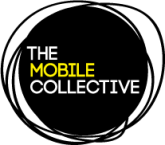Rich has posted a great article on Smartphone Health Apps on the World of DTC Marketing website, and on the Health 2.0 LinkedIn Group
Do Consumers want smartphone health apps?
APRIL 25, 2011 BY RICH
Smartphone apps have a high rate of dropouts with 26% being used only once and 74% being discontinued by the tenth use. A CHIC survey shows that the availability of a better app (34.4%) and lack of user friendliness (32.6%) are the top reasons for discontinuation of smartphone apps. However what the survey isn’t showing is that some people do not like to be reminded that they have a health condition that needs monitoring.
When I was doing some research with Type 1 and Type 2 diabetics on the use of smart phone apps to help them control and monitor their disease and glucose the findings were a double edged sword. Some patients wanted to know what they could do to ensure that they remained in optimum health and stayed on top of things like glucose levels while others didn’t want to be reminded that they had to “monitor themselves” because of diabetes.
In 2006, the daily SMBG (self-monitoring of blood glucose) rate was 63.4% among all adults with diabetes and 86.7% among those treated with insulin. Collaborations to ensure adequate health insurance coverage, diabetes education and counseling to encourage more intensive medical care and self-management practices, and continued surveillance measures to track changes in SMBG rates are needed to improve and monitor SMBG trends. However there is a fine line between informing and being intrusive.
Smartphone applications for patients are not easy to develop. They key is to ensure that the app is valuable and easy to use by patients or target audience. This means that you need to test the application with your audience and get their input into development. This is not the standard procedure for app developers. They usually release apps and if changes are needed they include them in subsequent releases.
The high dropout rate with smartphone apps is concerning to the healthcare industry because smartphone apps are beginning to play an important role in healthcare. The most recent pharmaceutical industry report by Ernst & Young from February 2011 reveals that in 2010 new initiatives in health technology by pharmaceutical companies increased by 78%. A staggering 41% of those new initiatives were smartphone apps. For the time and resources invested, pharma companies need to ensure that their investments in smartphone apps do not fall into the 26% that are used only once but rather into the 26% that are used repeatedly.
Key Takeaway’s
(1) Although penetration of smartphone use is increasing health apps have to have sustaining value to patients and be easy to use. This means that more dollars are needed to ensure the apps stay up to date and are available for the variety of smartphone platforms.
(2) Do not lump all disease states with this data. People respond differently to different types of health conditions; some are open to getting tips and helping them manage their health condition while for others a reminder is not welcome because it reminds them they have a health problem.
(3) Marketers need to test applications with patients/target audience before releasing them to the public. This means usability studies with patients.
(4) Application healthcare marketing is a long term commitment thus you need to choose a vendor who can form a strategic alliance with your company and help you develop and update your apps for the long term.








Discussion
No comments yet.